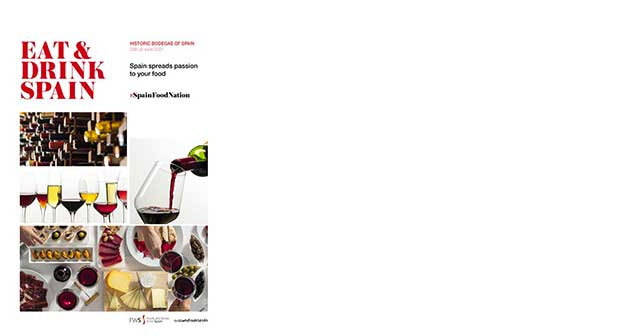.png.transform/rendition-xs/image_image%20(1).png)
Historic bodegas of Spain
The vine has been present in Spain for a long time. You can learn about it, accompanying with 6 noble wines examples, on the tasting organized by Spanish Embassy in Warsaw together with Foods&Wines from Spain. The tasting „Historic bodegas of Spain” will be commented in Polish by Michał Stykowski, the only Pole with Spanish Wine Scholar title and a great expert of Spanish wine history. 24th of June at 19.00 online on the fanpage.
The first testimonies of wine trade date back to 1.100 BC when the Phoenicians founded the city of Cádiz. They introduced the vine crops to the Mediterranean and southern coasts of Spain. Then came the Greeks, who brought the vine and wine to the Catalan (Emporion / Emporda) and Levantine (Valencia) coasts, and the Romans with their great expansion thanks to good connection of the Via Augusta that communicated Rome with Cádiz and other ports: Coruña, Malaga, Cartagena, Tarragona. Spain was the most important supplier of wine to Rome. The fame of the wines of Hispania began.
The next great era in the history of wine was Christianity. Dionysus and Bacchus were banished for the symbolic value of wine as the blood of Christ. The Christian monks grew vineyards and made wine to supply the monasteries. Centuries later, the Arab conquest in 711 paralyzed the development of wine production. The Koranic laws prohibits the consumption of wine, but some wine practices were tolerated. The Caliphate of Córdoba did not ban it, it only demanded discretion regarding wine. There were the times when planting vines was an act of rebellion and viticulture spread to other areas of Spain. And so on until the Reconquest. During these centuries, the importance of the Camino de Santiago was essential, the abbeys of the Cistercian and other orders were fundamental to grow and care about the vineyards.
Together with the discovery of America in 1492, new possibilities were opened for Spanish wine. Spanish missionaries and conquerors brought Spanish wine and vines to the new lands..
At the end of the 19th century, phylloxera arrived in France. The French resorted to Spain to stock up on wine. Arose the splendor of areas such as Rioja, Navarra or Catalonia. The French also brought new international varieties, mechanization of work in the vineyard, production methods, use of barrels ...
Came the day that plague also reached Spain, although affecting less. This will be the beginning of a poor times for Spanish winemaking. The Spanish Civil war (1936 - 1939) saw vineyards abandoned and wineries destroyed throughout Spain with regions like Catalonia and Valencia being particularly hard hit. It was followed by a period of military dictatorship in Spain under the rule od Francisco Franco. The death of Franco and the subsequent Spanish transition to democracy begun the renaissance of the winemaking tradition. The sector experienced modernization and the appellation system was created and developed. The 1986 is the time when Spain was accepted into the European Union and could benefit from its economic aid to the rural wine zones. The dry lands of Spain also benefit when the restrictions on irrigation were lifted in 1996 giving the winemakers greater control over yields and allowing to plant more areas.
All these factors helped Spain to enter the 21st century as a serious wine producing country, the first in the world in terms of vineyard area and the third worlds wine producer.
All that is an excuse to present wines from several Spanish wineries with many years or centuries of history..
Cava Codorniu Clásico Brut | Codorniu / Importer w Polsce Cerville
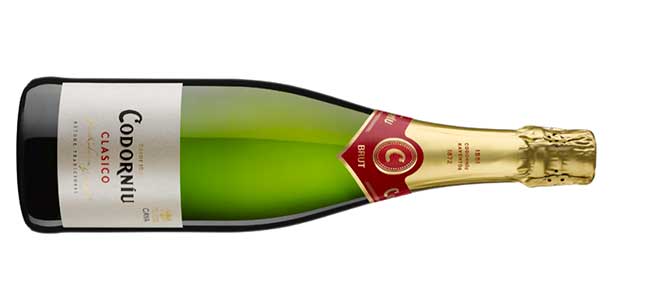
The Raventós Codorníu group is the oldest family company in Spain and the 17th in the world. It has more than 460 years of history dedicated to the elaboration of wines and cavas through more than 18 generations. The grapes for Codorníu Clásico come from the Cava Appellation region where these local varietals attain their fulI typicity. They are grown on vine plots selected by Codorniu´s viticulture and winemaking teams throughout the year in order to continuously care about the vines, monitor ripeness and determine the right moment for harvesting so that the grapes enter the winery in optimum condition, once they have been carefully and rapidly transported.
Viña Lisonja Verdejo 100% | Hijos de Alberto Gutiérrez / Importer w Polsce Monde
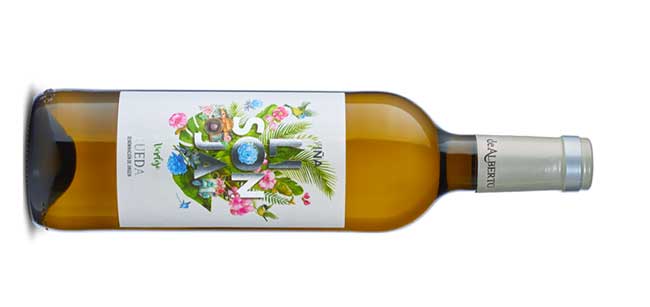
Bodegas de Alberto is an example of preservation of traditional wine production legacy for more than 350 years. In the heart of Castilla y León and Rueda appellation, Bodegas de Alberto is located in an old farmhouse founded by the Dominican Religious Order in the 17th century. Under the floor it has more than a kilometer long subterranean galleries that wonder under the whole village of Serrada.
Bordón Viña Sole Reserva 2011 | Bodegas Franco Españolas / Importer w Polsce Rafa Wino
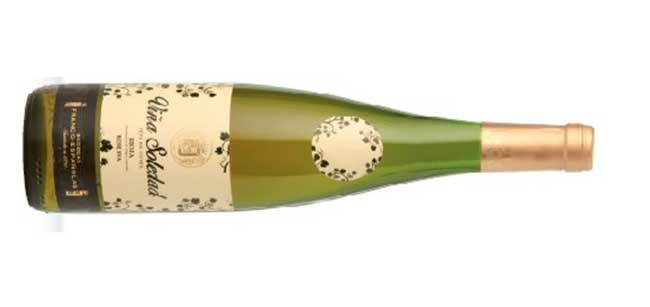
Bodegas Franco-Españolas was born in 1890 as the union between Spain and France, when the French came to the region trying to replace their vineyards devastated by the phylloxera disease. The privileged location of the winery, on the banks of the Ebro River, has made Bodegas Franco-Españolas a witness to the history of Logroño and Spain. Bordón Viña Sole Reserva was served at Crowning Ceremony of King Juan Carlos I in 1975 at Royal Palace, Madrid.
Etim L'Origen 2018 | Fałset importer w Polsce la Tienda
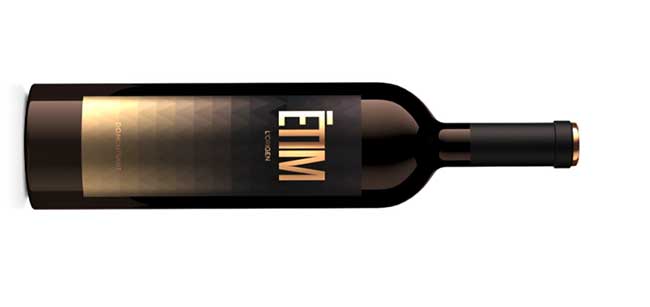
The Cooperative Falset, founded in 1912, joins more than 250 families of grape growers who have lived in the villages of Falset and Marça for generations. The winery building in Falset is a jewel of Modernism and is one of the Cathedrals of Wine designed by the architect Cesar Martinell, disciple of Antoni Gaudi.
Viña Mayor Crianza 2018 | Grupo Bodegas Palacio 1894 / Viña Mayor (Viña Mayor Importer w Polsce Wine Express Limited )
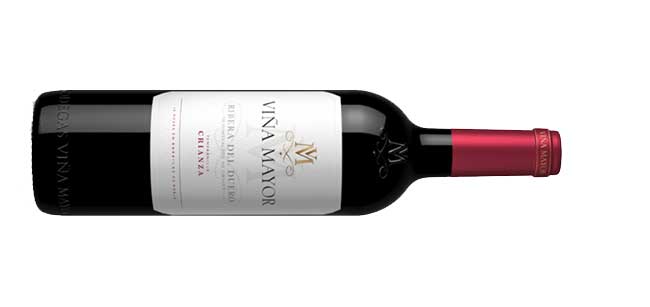
Located in the so called "Golden Mile", the most prestigious area of the appellation, Bodegas and Viñedos Viña Mayor brings together the Ribera del Duero´s great strengths. A winery with an innovative spirit and a profound respect for the environment (Wineries for Climate Protection WfCP certification).
Pago Florentino 2018 | Bodegas Arzuaga Navarro (importer w Polsce Vininova )
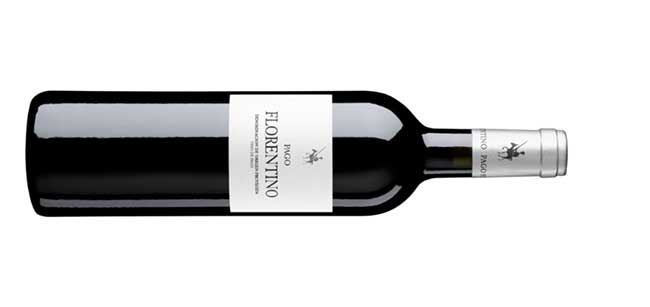
Pago Florentino is made every year with the best grapes from finca La Solana located in La Mancha. The vineyard is located at the foot of a hill, protected by a mountain and facing south, towards two natural lagoons. The weather characteristics are very particular, with winters with temperatures below zero and hot summers when the temperature can exceed 40 ºC. There are stones (galets) on the surface of the soils providing perfect drainage and the subsoil with clays with a high retention potential. Thanks to this the vines in summer suffer moderate water stress and a layer of slate underneath works as a raft.
Woda mineralna Aquadeus | Aquadeus
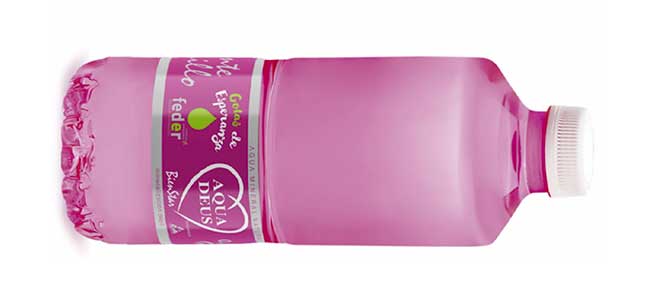
Natural mineral water of weak mineralization. The naturally small amount of total minerals (including nutrients) is the secret of natural mineral waters. Protected from any contamination, in an area of notable ecological value, Aquadeus springs forth, probably one of the most balanced natural mineral waters on the market and its chemical composition makes it unique in the world. In these natural surroundings, each drop of rain travels through the rock materials formed millions of years ago, this rain filters through the rocks balancing its chemical composition and emerge at a constant temperature of 12°C throughout the year, which ensures its qualities remain intact the whole the product’s life cycle.
Paluszki Rosquilletas | Vicent Pan
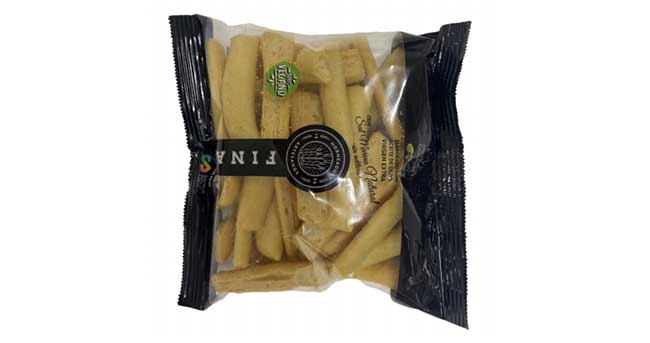
Finas Horneados is family business with a long history of traditional breadmaking and extensive experience in the baked goods industry. Their products Picos, Finas and Rosquilletas combine the finest raw materials with traditional artisan processing. Rosquilletas (Spanish specialty breadsticks) are originated in Valencia. These oven-baked breadsticks are made with virgin olive oil and high oleic sunflower oil, creating a range of flavors to suit all tastes and needs.
Event information
Date
June 24 2021
Time
19:00
Detalle events
- Events in: Poland - Online
- Events in: Warsaw
Genewska, 16 Warsaw 03963
226179408 / 226160954

